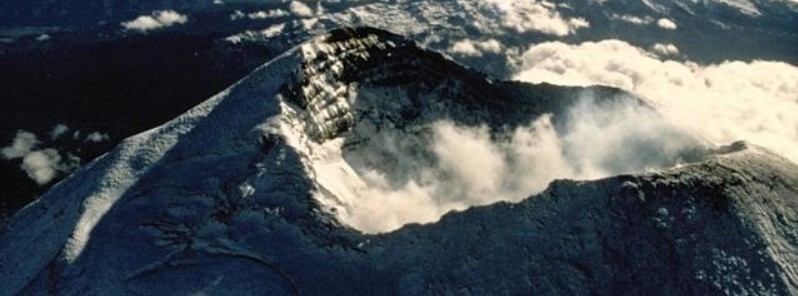Significant increase in activity under Llaima volcano, last eruption was in 2009

A significant increase in seismicity is being detected under Llaima volcano, one of Chile's largest and most active volcanoes, since October 1, 2017, SERNAGEOMIN reports. The last eruption of this volcano took place in 2009.
The volcanic monitoring network of Llaima has begun to register a series of low-frequency LP (long-period) type earthquakes, events commonly associated with the dynamics of fluids inside the volcanic system, on a regular basis since 12:00 UTC on October 1, 2017. Some 600 earthquakes were registered by 21:50 UTC on October 2.
This type of seismicity had not been recorded in the past couple of years of monitoring, the agency said.
Other monitoring parameters such as deformation and geo-dynamics have remained stable throughout this period.
At the time of the report, the top of the volcano was not visible due to meteorological conditions.
The Alert Level remains Green. This means that the volcano is in a stable behavior and there is no immediate risk.
Geological summary
Llaima, one of Chile's largest and most active volcanoes, contains two main historically active craters, one at the summit and the other, Pichillaima, to the SE. The massive, dominantly basaltic-to-andesitic, stratovolcano has a volume of 400 km3 (96 mi3). A Holocene edifice built primarily of accumulated lava flows was constructed over an 8-km-wide (5 miles) caldera that formed about 13 200 years ago, following the eruption of the 24 km3 (5.7 mi3) Curacautín Ignimbrite.
More than 40 scoria cones dot the volcano's flanks. Following the end of an explosive stage about 7200 years ago, construction of the present edifice began, characterized by Strombolian, Hawaiian, and infrequent subplinian eruptions. Frequent moderate explosive eruptions with occasional lava flows have been recorded since the 17th century. (GVP)
Featured image: Llaima volcano, Chile. Credit: Hugo Moreno, University of Chile

Commenting rules and guidelines
We value the thoughts and opinions of our readers and welcome healthy discussions on our website. In order to maintain a respectful and positive community, we ask that all commenters follow these rules.